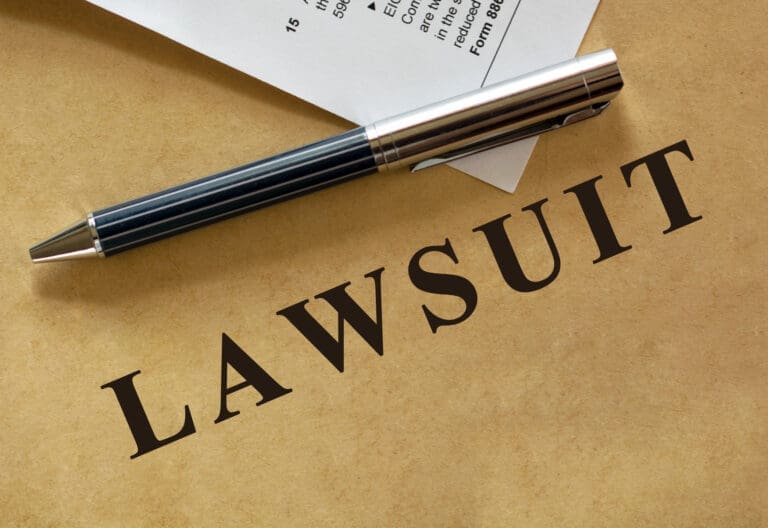
The cryptocurrency industry has been rocked by the sentencing of Sam Bankman-Fried, former CEO of FTX, to 25 years in prison for his role in one of the largest financial frauds in recent history. This landmark ruling coincides with the approval of FTX’s bankruptcy reorganization plan, marking a significant milestone in the ongoing saga of the collapsed crypto exchange. These dual developments have far-reaching implications for the cryptocurrency industry, investor protection, and the future of digital asset regulation.
Bankman-Fried’s fall from grace began in November 2022 when FTX, once one of the world’s largest cryptocurrency exchanges, filed for quiebra. The collapse sent shockwaves through the crypto market and beyond, leaving thousands of customers and investors in financial ruin. The subsequent investigation revealed a web of fraud, misuse of customer funds, and deceptive practices that led to criminal charges against Bankman-Fried and several of his associates.
The sentencing of Bankman-Fried to 25 years in prison serves as a stark reminder of the serious consequences of fraude financiero in the digital asset space. U.S. District Judge Lewis Kaplan emphasized the devastating impact of Bankman-Fried’s actions on thousands of victims who lost their life savings and retirement funds. The judge noted that the fraud was not a momentary lapse in judgment but a sustained pattern of deception that eroded trust in the entire cryptocurrency ecosystem. This ruling sets a precedent for how the justice system will handle large-scale fraud cases in the rapidly evolving world of digital assets.
The criminal charges against Bankman-Fried included conspiracy to commit wire fraud on customers of FTX, wire fraud on customers of FTX, conspiracy to commit wire fraud on lenders to Alameda Research, wire fraud on lenders to Alameda Research, conspiracy to commit fraud on customers of FTX in connection with purchase and sale of derivatives, conspiracy to commit securities fraud on investors in FTX, and conspiracy to commit money laundering. These charges collectively exposed the intricate web of deceit that Bankman-Fried had woven, using his position of trust and influence to manipulate the crypto market for personal gain.
Parallel to the criminal proceedings, the FTX caso de quiebra has been making its way through the courts. The approval of the reorganization plan by the bankruptcy court marks a crucial step towards providing some relief to the victims of the FTX collapse. The plan outlines a strategy for liquidating the remaining assets of FTX and its affiliated companies, with the goal of maximizing returns for creditors and customers who lost funds in the exchange’s implosion.
Under the terms of the reorganization plan, 98% of FTX creditors by number will receive approximately 119% of the amount of their allowed claims within 60 days after the effective date of the plan, subject to know-your-customer and other distribution requirements. This unexpected outcome has been hailed as a remarkable achievement in the world of bankruptcy proceedings, especially given the complexity and scale of the FTX collapse.
The FTX quiebra case has set several precedents in the realm of cryptocurrency law and bankruptcy proceedings. One of the most significant challenges faced by the court was determining the ownership and nature of digital assets held by the exchange. This required the court to grapple with novel legal questions surrounding the classification of cryptocurrencies and the rights of customers who had deposited funds on the platform.
The bankruptcy proceedings also highlighted the need for clearer regulations in the cryptocurrency industry. The lack of established legal frameworks for dealing with digital assets in bankruptcy cases posed significant challenges for the court and the parties involved. This has led to calls for more comprehensive legislation to address the unique aspects of cryptocurrency businesses and their potential failures.
One of the key issues addressed in the bankruptcy proceedings was the treatment of customer deposits on the FTX platform. The court had to determine whether these deposits should be considered property of the bankruptcy estate or if customers had a direct claim to their deposited funds. This decision had significant implications for the distribution of assets and the priority of claims in the bankruptcy process.
The FTX case also brought to light the complex international nature of cryptocurrency businesses. With operations and customers spread across multiple jurisdictions, the bankruptcy proceedings had to navigate a web of international laws and regulations. This highlighted the need for greater international cooperation in regulating and overseeing cryptocurrency exchanges and other digital asset businesses.
The approval of the reorganization plan represents a significant victory for FTX creditors, many of whom feared they would recover little to nothing of their investments. The plan’s provision for full repayment of non-governmental creditors, plus interest, is a rare outcome in bankruptcy cases, especially those involving fraud and mismanagement on the scale seen at FTX.
The FTX bankruptcy case has also shed light on the importance of proper corporate governance and internal controls in cryptocurrency businesses. The lack of basic financial and operational controls at FTX, as revealed during the bankruptcy proceedings, has prompted calls for stricter oversight and regulation of crypto exchanges and other digital asset platforms.
The case has also raised questions about the role of auditors and other professional service providers in the cryptocurrency industry. The failure of external auditors to detect the fraud at FTX has led to scrutiny of the audit practices for cryptocurrency businesses and calls for more rigorous standards in this area.
The FTX collapse and subsequent legal proceedings have had a profound impact on the broader cryptocurrency market. The incident has eroded trust in centralized exchanges and led to increased interest in decentralized finance (DeFi) platforms, which operate without a central authority. This shift in sentiment could have long-lasting effects on the structure and operation of the cryptocurrency industry.
The Bankman-Fried sentencing and FTX bankruptcy proceedings have also reignited debates about the need for stronger protección del inversor measures in the cryptocurrency space. Regulators around the world are now reassessing their approach to overseeing digital asset businesses, with many calling for more stringent requirements for cryptocurrency exchanges and other service providers.
The case has highlighted the importance of robust gestión de riesgos practices in the cryptocurrency industry. The interconnected nature of crypto businesses, as exemplified by the relationship between FTX and Alameda Research, has shown how failures in one part of the ecosystem can have far-reaching consequences. This has led to calls for improved risk assessment and management practices across the industry.
The FTX bankruptcy has also raised important questions about the custody of digital assets. The commingling of customer funds with company assets at FTX has underscored the need for clear segregation of customer assets and improved custody solutions in the cryptocurrency industry. This could lead to new regulations and industry standards for the safekeeping of digital assets.
The case has also brought attention to the role of cryptocurrency in broader financial markets. The collapse of FTX and its impact on other crypto businesses has highlighted the growing interconnectedness between the cryptocurrency sector and traditional finance. This has led to increased scrutiny from regulators concerned about the potential for crypto-related risks to spill over into the broader financial system.
The Bankman-Fried sentencing and FTX bankruptcy proceedings have also sparked discussions about the ethical responsibilities of cryptocurrency entrepreneurs and executives. The case has raised questions about the culture of risk-taking and rule-bending that has been prevalent in parts of the crypto industry, and the need for stronger ethical standards and accountability.
The FTX case has also highlighted the challenges of valuing cryptocurrency assets in bankruptcy proceedings. The volatile nature of digital asset prices and the lack of established valuation methods for many crypto tokens have posed significant challenges for the court and the parties involved in determining the fair value of FTX’s assets and liabilities.
The bankruptcy proceedings have also brought attention to the treatment of customer data in cryptocurrency businesses. The court had to grapple with issues related to the privacy and security of customer information held by FTX, highlighting the need for clearer guidelines on data protection in the crypto industry.
The FTX case has also raised questions about the role of venture capital and other investors in the cryptocurrency space. The failure of high-profile investors to detect the fraud at FTX has led to scrutiny of due diligence practices in crypto investments and calls for more rigorous vetting of cryptocurrency startups.
The bankruptcy proceedings have also highlighted the challenges of recovering assets in cryptocurrency fraud cases. The pseudonymous nature of many cryptocurrency transactions and the ease with which digital assets can be moved across borders have posed significant challenges for investigators and asset recovery specialists working on the FTX case.
The FTX collapse and subsequent legal proceedings have also had implications for cryptocurrency taxation. The case has raised complex questions about the tax treatment of losses incurred by FTX customers and the tax implications of the bankruptcy reorganization plan.
The Bankman-Fried sentencing and FTX bankruptcy case have also brought attention to the role of cryptocurrency exchanges in the broader financial ecosystem. The case has highlighted the need for improved oversight of these platforms, which often operate at the intersection of traditional finance and the crypto world.
The FTX case has also sparked discussions about the future of cryptocurrency regulation. Many experts argue that the collapse of FTX and other high-profile crypto failures in recent years demonstrate the need for a more comprehensive regulatory framework for digital assets. This could include new rules for cryptocurrency exchanges, stricter disclosure requirements for crypto businesses, and enhanced protections for retail investors.
The bankruptcy proceedings have also raised important questions about the application of traditional bankruptcy laws to cryptocurrency businesses. The unique nature of digital assets and the global reach of many crypto platforms have posed challenges for courts applying existing bankruptcy statutes. This could lead to calls for updates to bankruptcy laws to better address the complexities of cryptocurrency businesses.
The FTX case has also highlighted the importance of transparency in the cryptocurrency industry. The lack of clear financial reporting and disclosure at FTX has led to calls for improved transparency standards for crypto businesses, including more frequent and detailed financial reporting and clearer disclosure of risks to customers and investors.
The Bankman-Fried sentencing and FTX bankruptcy proceedings have also brought attention to the role of market manipulation in the cryptocurrency space. The allegations of price manipulation and other fraudulent practices at FTX and Alameda Research have led to increased scrutiny of trading practices in the crypto market and calls for stronger measures to detect and prevent market abuse.
The case has also raised questions about the sustainability of certain business models in the cryptocurrency industry. The collapse of FTX has led to a reevaluation of the risks associated with centralized cryptocurrency exchanges and other platforms that hold large amounts of customer funds.
The FTX bankruptcy proceedings have also highlighted the challenges of cross-border insolvency in the cryptocurrency space. With creditors and assets spread across multiple jurisdictions, the case has required complex international cooperation and raised questions about the adequacy of existing cross-border insolvency frameworks for dealing with failed cryptocurrency businesses.
The Bankman-Fried sentencing and FTX bankruptcy case have also sparked discussions about the role of tecnología blockchain in preventing fraud and improving transparency in financial systems. Some experts argue that the immutable and transparent nature of blockchain could help prevent the kind of large-scale fraud seen at FTX, while others caution that technology alone is not a panacea for financial misconduct.
The FTX case has also brought attention to the importance of cybersecurity in the cryptocurrency industry. The alleged security vulnerabilities at FTX have highlighted the need for robust cybersecurity measures to protect customer funds and data in cryptocurrency businesses.
The bankruptcy proceedings have also raised questions about the treatment of smart contracts and other blockchain-based agreements in insolvency situations. The court has had to grapple with novel legal issues related to the enforcement and unwinding of smart contracts in the context of the FTX bankruptcy.
The Bankman-Fried sentencing and FTX bankruptcy case have also highlighted the need for improved financial literacy among cryptocurrency investors. The complex nature of many crypto products and the high-risk profile of the industry underscore the importance of investor education and awareness.
In conclusion, the sentencing of Sam Bankman-Fried and the approval of FTX’s bankruptcy reorganization plan mark significant milestones in one of the most high-profile cryptocurrency fraud cases to date. These developments have far-reaching implications for the cryptocurrency industry, regulatory landscape, and investor protection measures. As the dust settles on the FTX saga, the lessons learned from this case will likely shape the future of digital asset regulation and governance for years to come.
Website citations:
https://en.wikipedia.org/wiki/United_States_v._Bankman-Fried
https://www.prnewswire.com/news-releases/ftx-receives-us-bankruptcy-court-confirmation-of-its-plan-of-reorganization-302269152.html
https://news.bloomberglaw.com/bankruptcy-law/ftx-settles-24-billion-tax-claim-wth-irs-in-bankruptcy-court
https://www.bayarea-criminaldefense.com/criminal-defense/federal-crimes/cryptocurrency-fraud-and-money-laundering/
https://www.americanbar.org/groups/business_law/resources/business-law-today/2023-march/the-crypto-bankruptcy-wave/
https://www.wired.com/story/sam-bankman-fried-trial-explained/
https://www.prnewswire.com/news-releases/ftx-files-consensus-based-plan-of-reorganization-302138948.html
https://www.sullcrom.com/About/Rankings/2024/October/FTXs-14-Billion-Bankruptcy-Plan-Approved-Model-Case
https://www.consumernotice.org/legal/crypto-bankruptcies/
https://attorneys.media/ftx-bankruptcy-sbf-sentence-repayment/







